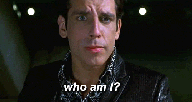“Digital Citizenship is more than just a curriculum to be taught in a classroom; it is an ongoing process to prepare youth for a society immersed in technology, personally and professionally.” – Robyn D. Shulman
This quote prompted me to begin sifting through all of my old posts because it presented a revelation of its simplicity/goal. I’m shocked that I don’t recall ever making the connection that digital citizenship education is just modern citizenship education; “prepare(ing) youth for society”. How is my school preparing students for this?
When Shulman listed off digital skills that might be taught in schools: “coding, animation, web design, blogging, cyber-security and narrowing down information”, I feared our (my) school only was hitting a couple at best, but it does hit these skills. Unfortunately it’s not with a specific consistently or continuity from course-to-course (it’s teacher-preference, or subject-specific with a heavy emphasis on computer science courses).

“Service guarantees citizenship” via MemeCrunch
But when broadening the definition to citizenship education that can have digital elements to it, the service learning and other citizenship education that occurs cross-curricularly in the school should promote similar values and skills when approaching the online realm. When considering the “ongoing process” piece Shulman mentioned – perhaps this represents the short-term educational change required to include digital citizenship? But how does one “monitor” or “manage” the learning that occurs in classrooms when it is such a broad, instructor-specific topic to cover elements of digital citizenship? This is where this broadening definition of citizenship also helps in the transition to digital citizenship education in some courses. Shifting the mindset on the digital world comes to be an extension of reality rather than a dangerous, unforgiving world as some parents or students may be approaching it, especially when we observe differences in digital literacy from one generation to the next – previous documents can still be relevant and promote transgenerational (digital) citizenship education in schools and in the home.
When I read Sklar’s take on digital hygiene, I began considering the impact home has. Education about digital citizenship occurs in a variety of ways today, some would argue it needs to occur in the creation of a positive online presence. and a lack of specific digital citizenship occurring in schools when I was an adolescent in the infancy stages of social media. It makes me feel incredibly fortunate that my father was very much into technology and trying to stay up to speed on it – by extension this helped us at least stay relevant and on top of/familiar with most new tech emerging, and Sklar appears to have their kids in a similarly-privileged position – the students have access to positive models for guided exploration into digital citizenship, but not every student is so fortunate (as Jana mentioned), which dictates the necessity for digital citizenship to be a part of education. Fortunately, this end is partially realized given subject-based outcomes through that expansion of preexisting understandings of what citizenship is to be inclusive of the digital community.

Mia MacMeekin’s Digital Citizenship via TeachThought
Citizenship occurs through the emphasis of digital citizenship. The critical thinking that occurs in the active deconstruction of our interactions in the digital world is a transferable skill. When considering implementation of this at an education system level – adaptability is key (much like the organic curriculum I’ve mentioned before, Sklar mentioned a “living document editable by students”). It has to shift and evolve with the ever-shifting, ever-evolving landscape to adequately and relevantly prepare students and equip teachers.
This is merely a surface “solution” to approaching digital citizenship (there a some lovely tips on how to implement this to the right, by the way). What does the future have in store for education?
How will schools shift in time? Will we see an increasingly student-centered classroom? Do the number of teachers need to increase to meet a more wide variety of student learning needs as technology further allows learning to be more personalized? Or will classrooms even exist if more technology makes education more available? It’s a tough call, so much is dependent on the “babysitter” properties of school that I see a “educational revolution” deviating from the current educational model as unlikely in the future – but I would welcome being wrong, even it put me out of a job.
Thoughts?
Let me know!
– Logan Petlak












